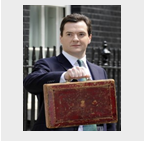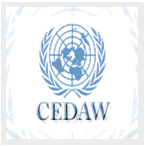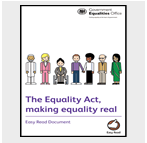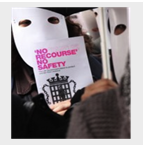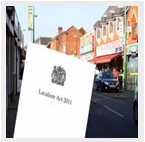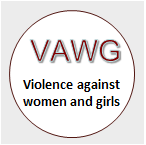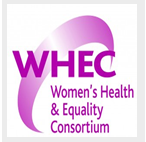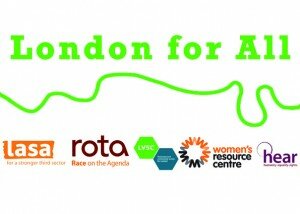The Women’s Resource Centre (WRC) is a charity which supports women’s organisations to be more effective and sustainable. We provide training, information, resources and one-to-one support on a range of organisational development issues. We also lobby decision makers on behalf of the women’s not-for-profit sector for improved representation and funding. Here you can find more information about the number of different projects and campaigns in which we are involved and support.
Since its election in 2010, the coalition government has introduced an unprecedented austerity package of public spending cuts to tackle a national deficit of over £120bn. Women have undoubtedly been disproportionately affected by austerity measures – analysis of the government’s first spending review found that women would bear 72% of the proposed tax rises and benefit cuts. Rising unemployment, falling wages and cuts to benefits are pushing many women from being able to just about make ends meet into financial hardship and poverty.
Women’s voluntary and community organisations have also been hard hit by the cuts and are sometimes seen as an easy target for savings. The women’s sector has always needed to be innovative in working with limited funding and this will become even more important within an increasingly competitive funding climate. Read more
United Nations (UN) General Assembly in 1979, the CEDAW Convention is often referred to as the Women’s International Bill of Rights.
Unlike domestic UK and European Community legislation on sex discrimination and equal treatment, the Convention is solely concerned with the position of women rather than discrimination faced by both sexes (which would include discrimination and inequalities faced by men). Read more.
The Equality Act received Royal Assent on 8 April 2010, just before the General Election, and the implementation of the majority of the Act began on 1 October 2010. The Act brings together the nine protected characteristics of: age, disability, gender reassignment (with a wider definition), marriage and civil partnership, pregnancy and maternity, race, religion or belief, sex and sexual orientation.
As part of the Act, the Gender Equality Duty (GED), along with the Race and Disability Equality Duties has been replaced by a Single Public Sector Equality Duty (PSED). This also covers all the protected grounds mentioned above. The Duty came into force in England and in Scotland from April 6 2011, and in Wales in Summer 2011. WRC will be following the development of the PSED closely as we are concerned that the specific duties contained within the GED have been altered and potentially impact on its effectiveness as a tool to hold public bodies to account. Read more.
Many women come to the UK, often legally, in the hope of improving their lives. They may come on temporary work permits, student visas or spousal visas. Some women come to the UK to marry. The ‘no recourse to public funds’ rule says that a woman in this position – even if she’s married to a British citizen – is not entitled to certain state benefits, including housing benefit and income support.
But these are the benefits a woman must be able to claim to get a place in a refuge if she needs to escape violence. As a result, many newly-married women in the UK are trapped in violent marriages and even if they do muster the courage to seek help from the authorities, they are simply turned away. Read more.
The localism agenda underpins the new Government’s plans to create a ‘Big Society’ and devolve greater power to local communities. Women’s Resource Centre is extremely concerned about the effect that decentralisation will have on gender equality. Whilst localism as a concept seeks to empower local communities, without a focus on equality it may perpetuate female disadvantage.These resources will be useful if you are interested in what the key drivers for local government policy are, and how you can use them. Read more.
 Police and Crime Commissioners
Police and Crime Commissioners
PCCs replace the Police authorities as the mechanism to hold the Police force to account; their role will include setting local policing priorities and objectives, developing a 5-year Police and Crime Plan, setting the police budget and precept.
It is in the PCCs powers to distribute grants to fund community safety initiatives; they will also act as commissioners for all local victim support services. However, from 2014 onwards, PCCs will no longer receive a separate ring-fenced community safety fund, which includes funding streams to violence against women and girls (VAWG) services. Instead, PCCs will have one budget and can choose how they divide it between policing and community safety activity.
If a PCC lacks understanding and knowledge of the prevalence, effects and types of services needed for survivors of domestic and sexual violence (and other forms of violence), some VAWG services’ funding may be under substantial threat. It is vital that the women’s sector can work to engage with, and influence, PCCs to ensure that VAWG remains a high priority locally. Read more.
VAWG
Violence Against Women and Girls (VAWG) is a key issue in the UK that affects 3 million women each year, with many more women living with past experiences of abuse. VAWG includes domestic violence, rape and sexual violence, sexual harrassment, female genital mutilation, forced marriage, crime in the name of honour, trafficking and sexual exploitation. Read more.
The Women’s Health and Equality Partnership (WHEC) is a strategic partner to the Department of Health, working to address women’s health inequalities across England and campaign for a health and social care system that meets the needs of all women and girls appropriately.
WHEC is a partnership of women’s organisations including Platforms 51, FORWARD, Imkaan, Maternity Action, Positively UK, Rape Crisis England and Wales, and the Women’s Resource Centre, all of whom share the common goals of improved health and equality for girls and women. Read more.
London for All
London for All is a partnership project between Lasa, Race on the Agenda, London Voluntary Service Council, HEAR Network and the Women's Resource Centre. The project, led by London Voluntary Service Council, is designed to help London's organisations strengthen their knowledge and skills, work more effectively and better support services for beneficiaries. You are invited to improve efficiency and effectiveness by accessing a range of fully-funded support services to transform your organisation and the services you provide. Read more.

